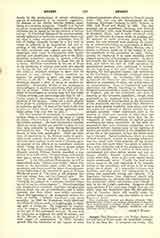

Anagni, the Diocese of, An Italian diocese in the province of Rome under the immediate jurisdiction of the Holy See. It comprises ten towns. The church in Anagni claims an Apostolic origin. Anagni as a bishopric appears in history in the fifth century. Felix its bishop was present at the Lateran Synod held in 487 (Mansi. VII, 1171), and Fortunatus was amongst those who signed the Acts of the Synod of 499 (Mommsen, M. G. H. Auct., Ant., XII, 400). In later centuries the Bishopric of Anagni attained great importance because its occupants received special consideration from the popes. Zachary of Anagni was the legate of Nicholas I at the Synod held in Constantinople in 851 to decide as to the validity of the election of Photius to the patriarchate. In 896 Stephen of Anagni became Pope. Anagni gave four popes to the Church, all related to one another: Innocent III (1198-1216); Gregory IX (1227-41); Alexander IV (1254-61); Boniface VIII (1294-1303). St. Thomas Becket in his flight was received at Anagni by the canons, and a chapel erected to him in the basement of the cathedral at the request of Henry II of England, is now used as a place of sepulture for the canons. Boniface VIII was violently attacked at Anagni by Guillaume Nogaret and Sciarra Colonna, emissaries of Philippe le Bel. Various privileges have been conferred on the diocese and the canons by different popes. The cathedral has several rich ecclesiastical relics, such as chests and vestments. There are 31,200 Catholics, 26 parishes, 59 secular priests, 52 regulars, 45 seminarists, 50 churches or chapels.
ANAGNI, COUNCIL OF (1160). At this council, surrounded by his cardinals and bishops, Alexander III solemnly excommunicated the Emperor Frederick (Barbarossa), the Pfalzgraf Otto, and their followers, and renewed the excommunication of the Antipope Octavian (Victor III). The Emperor’s subjects were declared absolved from their oath of allegiance.
JOHN J. A’ BECKET

